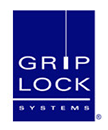Industry News
Super-Efficient Lighting Technologies Provide Energy Saving Ideas
April 29, 2008
By: Thomas Slater/ Ventrure Beat
In Australia, the husband and wife team behind Lumiflux has found a way to make a 50 year old technology seem new and, well, shiny. Electroluminescence, or EL, has been the technology behind your digital watch night-light and a series of small lamps from Sylvania for a long time. Until quite recently, though, EL was not bright enough for more widespread area lighting applications.
Ernest and Gabriella Kabay have developed EL panels that are flexible, easily cut to shape and 2-3 times brighter than previous generations of EL. This makes them ideal for outdoors advertising and signage.
In the US alone there are approximately one hundred million exit signs. Every year, these require thirty to thirty five billion kilowatt-hours, which costs two point eight billion dollars to produce and is the equivalent of four million cars on the road. Lumiflux EL signage would reduce that to 10% of current figures. In “exit” signs alone, there are impressive potential savings. The possibilities go much further, Kabay says. Outdoor advertisements, highway billboards, business signs and anything else normally requiring a large surface area to be lit up would all save an enormous amount of power by using EL instead of fluorescent technology.
ElectroCeramescent (ECer) lighting is a competing technology from the US, and a close relative of EL technology. ECer lighting co-developed by Meadow River Enterprises and Osram-Sylvania, in collaboration with the United States Department of Energy, can light up a billboard over forty times more efficiently than fluorescent lighting. An average fourteen-by-twenty foot billboard lit with fluorescent lights requires 550 watts of power — ECer brings that requirement down to 12.5 watts.
ECer lights are composed of a ceramic-and-steel structure that can be laser-cut to any desired shape. The sign itself is the light — which means that instead of lighting up an entire sign (“Exit”) with artificial daylight conditions, only enough light to contrast with the night is needed. This dramatically reduces power consumption and light pollution, while increasing visibility. Since it is made from steel and ceramic, durability is not expected to be an issue. “Property of…” signs may be expected to last 50,000 hours with little maintenance, even in harsh conditions and high-vandalism areas.
While EL and ECer lighting might save the world with their outdoors efficiency, they still aren’t bright enough for indoors lighting. For human working range brightness it is hard to do better than natural sunlight – which is, at the time of this writing, still free. To that end, the research and manufacturing giant 3M has patented a way to pipe daylight and Fluorosolar has found a way to take advantage of ambient UV light.
Click below to read more:









































